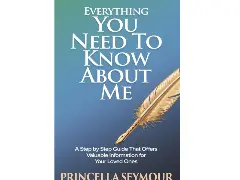

If you have young grandchildren - or anticipate having them someday - you might want to consider piano lessons. You could give them as a gift or encourage parents to keep this in mind: Piano lessons help language development.
How, specifically, does playing the piano help a child acquire language? By practicing piano, a child learns how to distinguish subtle differences in sounds and tones produced by the instrument. According to a new study from the Proceedings of the National Academy of Sciences (PNAS), children who play the piano can transfer this skill to recognizing subtle differences between spoken words. When consonants, such as “t” and “d” are spoken, our brains have to decide immediately which sound it is.
If your family is not musically inclined, here's another way to boost speech. Researchers at Harvard, MIT and the University of Pennsylvania have concluded that the way we talk to young children makes a difference. “Back-and- forth banter" had the greatest positive impact on young children's language development. Also called "conversational turns," this happens when a baby makes a sound or a young child asks a question - and an adult responds with immediate interest, and the conversation goes back and forth.
That means other means of building vocabulary, such as watching an educational program or using an app or an adult delivering a non-stop barrage of words, aren't as helpful. The conversational turns tested in the Boston-area study consisted of exchanges between an adult and child with less than five seconds between their “turns” to talk. After these exchanges took place, the kids were given standardized tests, and their verbal test score increased by one point with every 11 conversational turn.
Music or conversation. Grandparents give us this caution: Sometimes once you get them talking, you might never get in another word.
And if these two options sound daunting, consider simply reading a book. Reading a book to a child is much more than just a memorable bonding activity (which is a good enough reason on it's own); reading to children also speeds up their path to literacy.
Perhaps you have heard of the “million word gap”. Children who are read just one story per day before kindergarten will hear nearly 300,000 more words than kids whose parents (or grandparents) didn’t read to them. If you read five stories per day, the vocabulary gap increases to more than one million words! Children who hear more words growing up are more likely to recognize them in print and will learn to read faster. "The word gap of more than 1 million words between children raised in a literacy-rich environment and those who were never read to is striking," says Jessica Logan, assistant professor of educational studies at The Ohio State University. This "million word gap" is likely a key reason why reading abilities vary so much amongst kindergarteners. So, next time you're visiting with grandchildren, pick up a book and start reading!
If your'e interested in learning more about ways to use conservational turns, you can read more.








Comments
Post a Comment